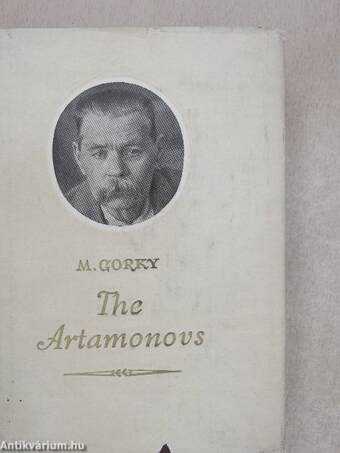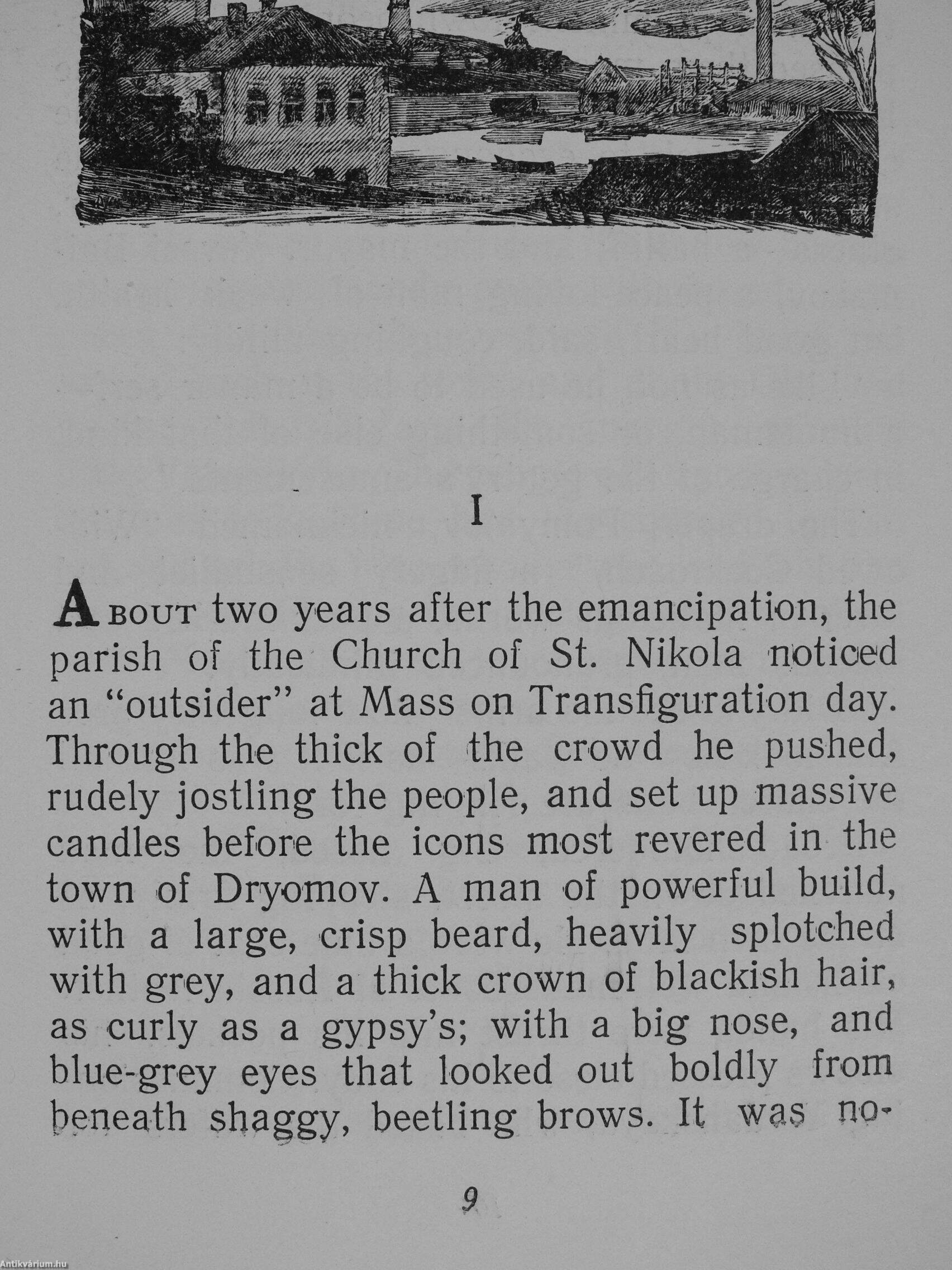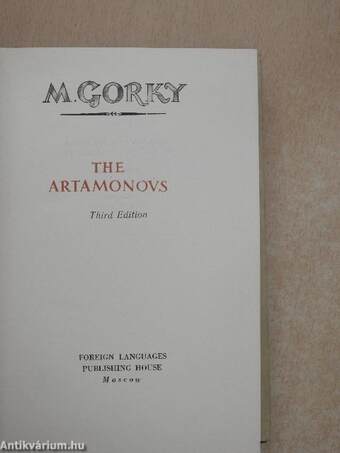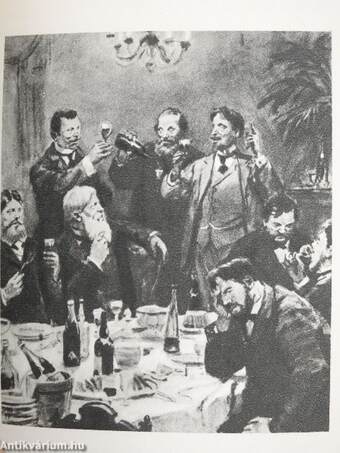1.067.017
kiadvánnyal nyújtjuk Magyarország legnagyobb antikvár könyv-kínálatát

VISSZA
A TETEJÉRE
JAVASLATOKÉszre-
vételek
The Artamonovs
| Kiadó: | Foreign Languages Publishing House |
|---|---|
| Kiadás helye: | Moszkva |
| Kiadás éve: | |
| Kötés típusa: | Fűzött keménykötés |
| Oldalszám: | 546 oldal |
| Sorozatcím: | |
| Kötetszám: | |
| Nyelv: | Angol |
| Méret: | 17 cm x 12 cm |
| ISBN: | |
| Megjegyzés: | 3. kiadás. Fekete-fehér illusztrációkat tartalmaz. |
naponta értesítjük a beérkező friss
kiadványokról
naponta értesítjük a beérkező friss
kiadványokról
Előszó
TovábbFülszöveg
Although The Artamonovs [ was not actually written until 1924-25, the idea of such a book I rose in the author's mind many years earlier. Thus, in his reminiscences of encounters with L. N. Tolstoi in the Crimea in 1901-02 we read:
"I told him the story of three generations of a merchant family I knew—a family which the law of progressive degeneration had affected with particular cruelty. And he began pulling at my sleeve excitedly, urgently.
" There-that's the truth! I've seen it. There are two such families in Tula. And it must be written. Compressed into a novel—do you see what I mean? Yes, without fail!'
"And his eyes flashed eagerness.
" The one that becomes a monk, to pray for all the family—wonderful! It's real life:
you sin, and I'll go pray your sins away. And the other, building, grabbing, sick with boredom—that's true, too! And his drinking, and brutality, and debauchery, his loving everyone, then suddenly murdering—ah, but it's goodl That's what you must put into... Tovább
Fülszöveg
Although The Artamonovs [ was not actually written until 1924-25, the idea of such a book I rose in the author's mind many years earlier. Thus, in his reminiscences of encounters with L. N. Tolstoi in the Crimea in 1901-02 we read:
"I told him the story of three generations of a merchant family I knew—a family which the law of progressive degeneration had affected with particular cruelty. And he began pulling at my sleeve excitedly, urgently.
" There-that's the truth! I've seen it. There are two such families in Tula. And it must be written. Compressed into a novel—do you see what I mean? Yes, without fail!'
"And his eyes flashed eagerness.
" The one that becomes a monk, to pray for all the family—wonderful! It's real life:
you sin, and I'll go pray your sins away. And the other, building, grabbing, sick with boredom—that's true, too! And his drinking, and brutality, and debauchery, his loving everyone, then suddenly murdering—ah, but it's goodl That's what you must put into writing.' "
S. T. Morozov, prominent industrialist and patron of the arts in tsarist days, said, in recalling his conversations with Gorky:
"One day, I told Gorky our
family history____It caught his
interest. He is thinking of writing a novel about it—has a name planned for it, even The Artamonovs."
The book is dedicated to Romain Rolland, with whom Gorky conducted a lively correspondence, and for whom he felt the most profound esteem. Vissza
Témakörök
- Idegennyelv > Idegennyelvű könyvek > Angol > Szépirodalom > Regény, novella, elbeszélés
- Szépirodalom > Regény, novella, elbeszélés > Az író származása szerint > Európa > Orosz Föderáció
- Szépirodalom > Regény, novella, elbeszélés > Tartalom szerint > Családregények
- Szépirodalom > Regény, novella, elbeszélés > Tartalom szerint > Filmregények
- Szépirodalom > Regény, novella, elbeszélés > Tartalom szerint > Kor- és társadalomrajz



















